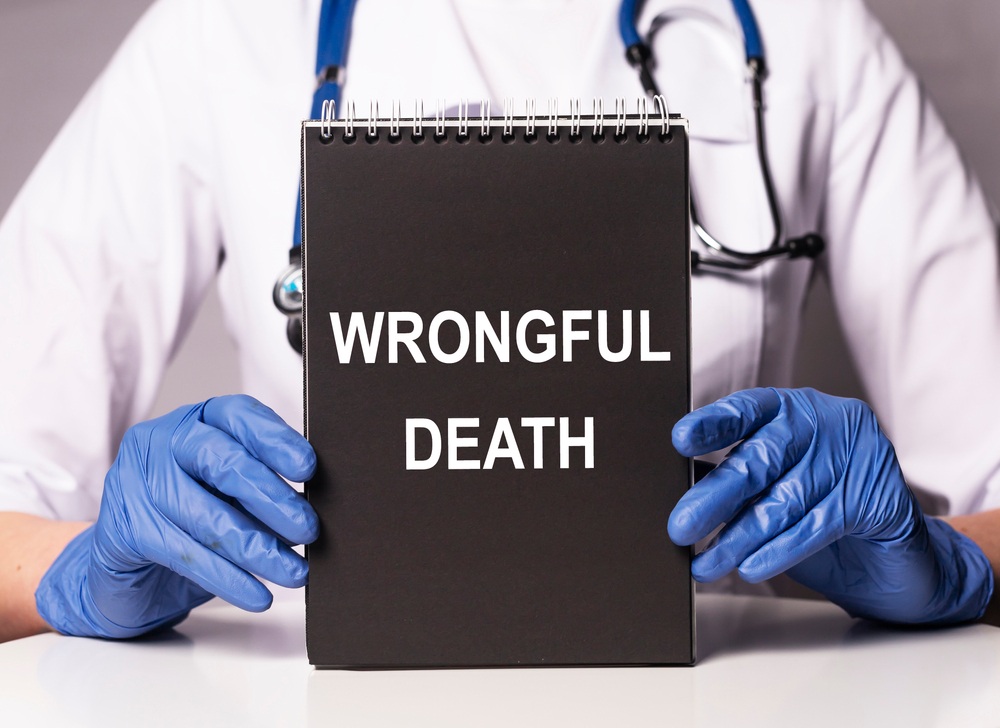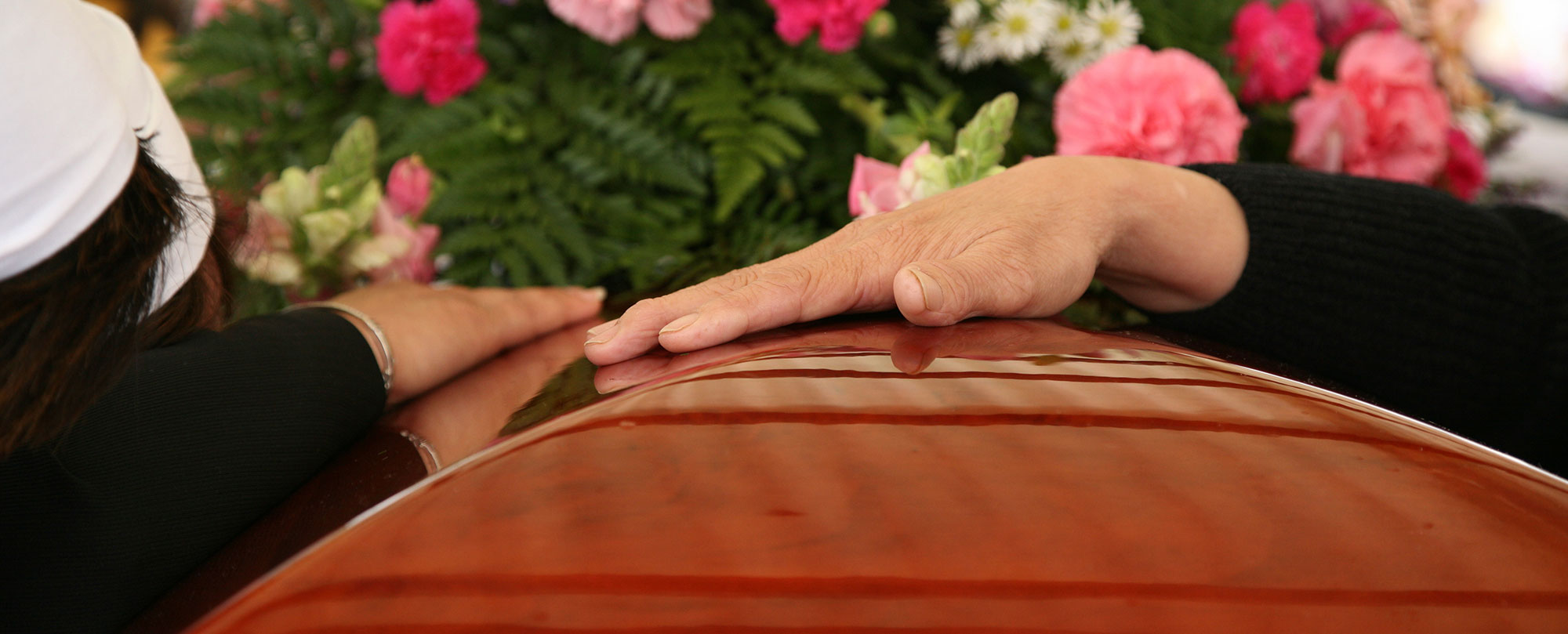The answer depends on the state in which you live. In some states, like South Carolina, the decedent’s personal representative must file a wrongful death suit on behalf of the family. In other states, the surviving children, parents, or spouses can take action.
To understand who can file a wrongful death suit in your state, call a wrongful death attorney near you. They can tell you how a wrongful death lawsuit works and the circumstances that affect your case.
What Is a Wrongful Death Suit?

When someone passes away due to another person’s negligence or carelessness, a personal representative or certain family members can bring a wrongful death lawsuit against the responsible party. Wrongful death lawsuits allow the decedent’s dependents and immediate family members to obtain financial compensation for the losses associated with their loved one’s death.
A wrongful death claim is a civil claim separate from criminal proceedings. However, the outcome of a criminal trial for the actions that caused the decedent’s death can affect the civil trial. Even if the party who caused your loved one’s death doesn’t face criminal charges, you can still bring a wrongful death lawsuit against them.
What Are the Grounds to File a Wrongful Death Lawsuit?
If you lost a loved one because of an individual or organization’s negligent actions, you could seek compensation through a wrongful death suit.
To establish fault in a wrongful death case, you must prove that:
- The responsible party knew or should reasonably have known that their actions could cause injury or death to another.
- The at-fault party still engaged in that negligent behavior.
- The responsible party’s negligent behavior caused your loved one’s death.
- You suffered losses because of your loved one’s death due to the at-fault party’s negligence.
A wrongful death attorney can help you understand your legal rights following the death of a loved one, navigate the filing process, and gather evidence to support your wrongful death suit.
How Do I Know Who Can File a Wrongful Death Suit?
Every state has different guidelines for who can file a wrongful death lawsuit. Many states agree that the decedent’s personal representative can seek wrongful death compensation, and the surviving family members benefit from the outcome. However, other states allow the decedent’s parent, spouse, or child to take action.
A Personal Representative
If the decedent’s will appoints a personal representative or executor of the estate, they would file a lawsuit on behalf of the deceased. In this situation, the decedent’s legal will could take precedence over close family relationships.
Some states allow surviving immediate family members or beneficiaries to overrule the personal representative or executor. This could prevent the executor or representative from bringing a wrongful death lawsuit altogether.
If there are no surviving family members and no will, the court will usually appoint a representative to handle the decedent’s affairs. This individual has the power to pursue a wrongful death lawsuit or survival action for losses associated with the decedent’s death.
Decedent’s Spouse or Domestic Partner
If you were in a domestic partnership, civil union, common law marriage, or formal marriage with the decedent, certain states allow you to bring a wrongful death case against the responsible party. The parameters for eligible domestic partnerships differ significantly by state, so it is helpful to work with an attorney familiar with wrongful death laws in your area.
Decedent’s Surviving Children
If you are a legal adult whose parent passed away due to someone else’s negligence, some states will allow you to bring a wrongful death action against the at-fault party. If you have siblings, you may all have equal grounds to file, so you could consolidate your claims. Depending on the state, step-children, foster children, and adopted children may have different rights.
Decedent’s Surviving Parents
If the deceased individual was a minor child, their parents can file a wrongful death lawsuit for their losses. Some states may permit step-parents, adoptive parents, or foster parents to bring a wrongful death suit, depending on the facts of the case.
If the deceased individual was an unmarried adult with no children, their surviving parents are considered immediate family members. They could bring a wrongful death suit if they are the closest immediate family, especially if they lived in the same household and shared income and expenses.
Decedent’s Distant Family Members
In some cases, the decedent is a single individual without surviving children or parents. Some states may allow certain other family members like siblings, grandparents, aunts, or uncles to seek compensation for injury or else through a wrongful death case. Certain limitations apply, so you may want to consult a wrongful death attorney before filing a suit if you are a distant relative.
What If Multiple Eligible Family Members Want to File a Wrongful Death Suit?
Many states will only allow one wrongful death lawsuit for the decedent. If a dispute arises between family members or the eligible parties file more than one suit, the court may consolidate them into one wrongful death case.
Other factors can affect which family members can file a lawsuit. For instance, if the decedent’s domestic partner is appointed by the will as the personal representative or executor, their suit may take precedence over a lawsuit filed by a surviving parent or child. State laws and the judge’s discretion govern such decisions.
What Damages Can I Seek in a Wrongful Death Lawsuit?
Losing a loved one is a traumatic and life-altering experience. In addition to the grief and loss you experience following a loved one’s death, your financial stability can be compromised. A wrongful death action seeks monetary compensation for the physical, mental, and financial damages from the entity responsible for your loved one’s death.
Damages you can seek through a wrongful death suit include:
- Funeral costs and burial expenses
- Medical bills associated with your loved one’s fatal condition
- Pain and suffering
- Emotional anguish
- Loss of advice and companionship
- Loss of financial support
A wrongful death lawyer can help you understand which damages you can seek following the death of a loved one.
What Is the Difference Between a Wrongful Death Suit and a Survival Action?
As discussed above, a wrongful death lawsuit allows the decedent’s personal representative or surviving family members to pursue compensation. A wrongful death settlement is disbursed to the family members directly as compensation for their losses.
If the deceased person passed away after filing a personal injury lawsuit for the condition that caused their death, the executor or authorized representative could pursue a survival action on behalf of the decedent’s estate. A survival action is brought on behalf of the deceased individual rather than the surviving loved ones.
Survival Action Damages and Disbursement
Although damages in a survival action are like those in a wrongful death claim, they are more concerned with the injuries the decedent sustained. The judge of a survival action will award the settlement to the decedent’s estate directly.
The executor can then use those funds to pay outstanding bills related to the decedent’s injuries, including medical bills, funeral costs, and burial expenses. The remaining settlement will be disbursed to the decedent’s beneficiaries in accordance with the will or as a judge orders.
How Does a Wrongful Death Lawsuit Work?
When you file a wrongful death lawsuit, you must prove that you are an eligible family member or personal representative of the decedent’s estate. You must also have evidence to prove another party’s negligence caused your loved one’s death.
Evidence you can use to pursue a wrongful death claim includes:
- Videos and photos that show how your loved one was injured or became ill
- Death certificate verifying your loved one’s cause of death
- Medical records for treatment related to your loved one’s fatal condition
- Witness statements from people who observed the cause of death
- Police reports detailing the situation that led to your loved one’s demise
- Criminal case details and records
- Physical and documented evidence linking the responsible party to your loved one’s death
- Documentation to prove lost income, including W2s, tax returns, and pay stubs
- Receipts, invoices, and bills for expenses related to your loved one’s death
Wrongful death lawyers can handle gathering the type of evidence you need to prove fault and establish your wrongful death claim value.
Do I Need a Lawyer to File a Wrongful Death Suit?

It may not be in your best interests to pursue wrongful death compensation without a lawyer. Wrongful death suits often include probate proceedings, inheritance laws, and family law. An attorney familiar with wrongful death claims can help you understand the process and guide you through the final settlement.
When you work with a wrongful death lawyer, you have the support of an advocate who can work to secure justice and fair compensation for your loved one’s loss.
A wrongful death lawyer can:
- Explain the wrongful death claim process and keep you up to date on case developments
- Obtain medical records, death records, police reports, and coroner’s reports to establish the cause of death
- Compile bills, invoices, pay stubs, tax returns, and other financial documents to prove your economic losses
- Establish the monetary value of your non-economic losses like pain and suffering and loss of companionship
- Obtain videos, photos, and witness statements to prove fault in your loved one’s death
- Request legal documentation for any criminal proceedings related to your loved one’s death
- Review your loved one’s will and testament and any other documents to prove your eligibility to file a wrongful death claim
- Fight for your legal rights in negotiations with insurance companies
- Advocate for just compensation during wrongful death trial proceedings
- Respond to any legal correspondence, emails, or phone calls pertaining to your wrongful death claim
If you lost someone you love to someone’s negligent actions, you should not have to suffer financial difficulties in addition to your grief. A wrongful death attorney can help you obtain financial compensation so you can take the time you need to grieve your losses.
How Long Does a Wrongful Death Lawsuit Take?
Wrongful death cases can take months or years to achieve a final settlement or verdict. Complicated claims involving multiple parties or large corporations are likely to take longer than more straightforward claims.
For example, if your loved one died due to a defective car component, you may file a wrongful death suit against the component manufacturer, vehicle manufacturer, vehicle distributor, or vehicle seller. Depending on the circumstances surrounding the vehicle defect accident, court proceedings can drag on while the accused parties deny fault or try to reduce their liability.
Regardless of the complexity, you may benefit from working with a wrongful death attorney. They can streamline the claims process and help ensure that you have the evidence you need to pursue maximum compensation.
How Much Time Do I Have to File a Wrongful Death Suit?
Most state laws establish a legal limit on the time you have to file a wrongful death lawsuit. This time frame can range from only one year to several years. The cause of your loved one’s wrongful death also affects this timeline.
For instance, deaths caused by gross negligence or criminal actions, such as driving while intoxicated (DWI), may have a longer statute of limitations for filing a wrongful death lawsuit.
Unfortunately, if you miss a legal filing deadline, you could lose the opportunity to secure financial remuneration for your loved one’s wrongful death. An attorney in your area will know which laws apply to your case. They can keep your case on track and meet important filing deadlines, so you have the best chance for a fair outcome.
Filing a Wrongful Death Suit With the Help of a Lawyer
If you lost a loved one due to someone else’s negligence, a wrongful death lawsuit could benefit you and your family. The right personal injury lawyer can help you understand who can file a wrongful death suit in your state and what evidence you need to support your case.






